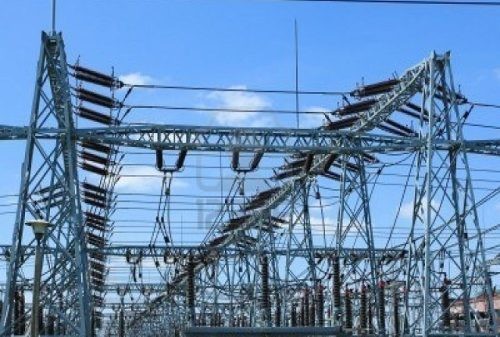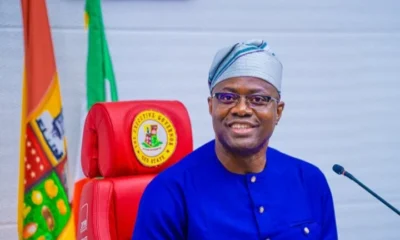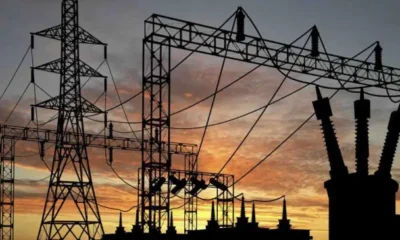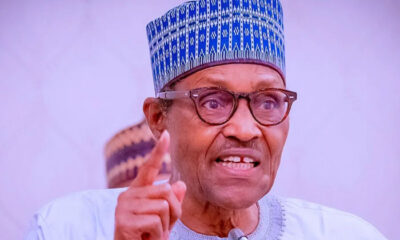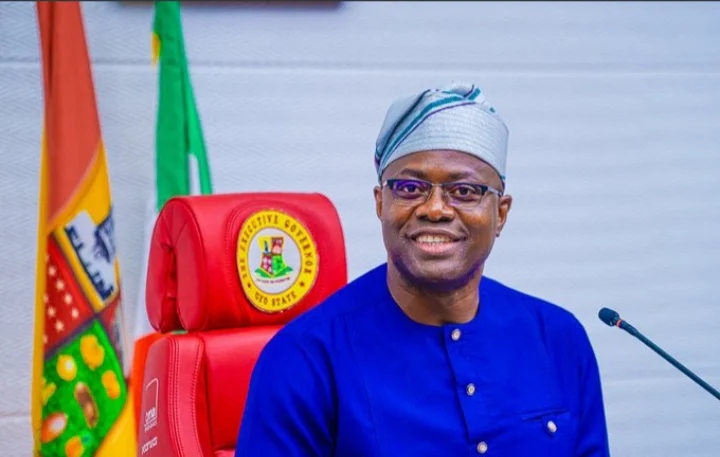The Federal Ministry of Power announced on Monday that Nigeria’s power generation reached a three-year high of 5,313 megawatts.
According to a statement issued by Bolaji Tunji, media aide to the Power Minister, electricity distributors must ensure efficient distribution of the generated energy.
“The national grid on Monday hit a record high of 5,313MW, a record high in the last three years,” the statement disclosed.
Minister of Power, Adebayo Adelabu, urged power distribution companies to take more energy to prevent grid collapse, noting that the grid’s frequency drops when power is produced but not picked up by the Discos.
Adelabu emphasized:
“Efforts would be made to encourage industries to purchase bulk energy.”
However, a senior official from one of the distribution companies expressed concerns:
“The power companies are finding it difficult to pick the extra energy produced by generation companies because they were not happy with the tariff on other bands apart from Band A.”
“As it is now, we are operating at a loss. Yes, they supply more power but this problem could be solved with improved tariff for the other bands and more meter penetration to recover the cost,” the Disco official, who pleaded not to be named due to lack of authorisation to speak on the matter, said.
On Saturday, the ministry said power generation that peaked at 5,170MW was ramped down by 1,400MW due to Discos’ energy rejection.
Meanwhile, the Tuesday statement from the power ministry stated that the Federal Government had signed a Memorandum of Understanding with a Chinese Company, Mutual Commitment Company Limited to assemble electric tricycles and establish a renewable energy training centre.
The MoU signing ceremony, facilitated by the Rural Electrification Agency, was attended by Adelabu and the Managing Director of REA, Mr Abba Aliyu.
The event took place in Beijing on the eve of the opening ceremony of the African-China Co-operation Summit.
Adelabu said the MoU event is important and will be a memorable day for Nigeria.
He congratulated the REA and the National Power Training Institute of Nigeria for the event, saying it will aid in achieving Nigeria’s vision for the renewable energy sub-sector of the entire electricity sector value chain.
Adelabu added, “I know Nigeria and China have a lot of things in common, one of which is the fact that Nigeria and China are both high-population countries and with a country with a high population, you have so much pressure.
“The first pressure is that of energy access and the second is job creation. So when you take steps to achieve both, it is a thing of joy. I am particularly happy that this is happening during the tenure of President Bola Tinubu, as it is in line with achieving the Renewed Hope Agenda of the administration for the country.”
The minister said Tinubu has prioritised the power sector as the driver for all other critical sectors of the economy.
“We have relied so much on centralisation of our power sector for so long that it is not taking us anywhere,” he stated.
Adelabu revealed that almost 40 per cent of Nigeria’s population lacks access to energy with its attendant consequences.
“So, moving away from centralisation, we have decided to adopt the distributed power model to ensure that every Nigerian has access to energy. A lot of our population resides in rural areas, a lot of our educational and tertiary health institutions are isolated and they are still facing epileptic power supply.
“We have also found out that the adoption of the distributed energy model will expand the energy net for our rural dwellers, the rural businesses, our universities, and tertiary health institutions; which is why the focus is on renewable energy which we believe is scalable and can exist in isolation of national grid that is currently facing lots of pressure,” he explained.
He noted that as Nigeria continues to expand energy access, the country also wants to transition to cleaner sources of energy that are sustainable and environment-friendly.
He said the MoU would achieve the vision for the renewable energy sub-segment of the power sector.
“We will be able to produce jobs for our large youthful population that is growing every day. Our polytechnics, technical colleges, and universities are turning up graduates yearly without assurance of job placement. This will go a long way to make it happen, at the same time, we will be able to achieve our energy access expansion”
He noted northern African countries such as Tunisia, Morocco, Egypt and Algeria have achieved 100 per cent electrification of their countries and in South Africa, about 95 percent.
“Unfortunately, Nigeria is still at 62 percent, though there are still some African countries with worse levels of achievements, but this is not where we belong. If these countries can achieve this, why is it not possible for Nigeria with the level of our natuSeeSeeral endowment? We have the gas, the dams are also there for the hydropower electric. The wind, both desert and coastal, is there while sunshine is also effective. So, what are we waiting for?
“A step like today’s will enable us to move up on our level of electrification. This will consequently lead to growth in our Gross Domestic Product because of the economic activities that would be created. This will also save us foreign exchange expenditure on importation and create jobs for our people, if we assemble these things locally,” he said.
Earlier, the REA boss said the ceremony was capable of delivering on the presidential mandate of building local capacity and creating more job opportunities.
“We will track this and ensure the delivery of the commitment within the tenure of the present administration. We will also track the economic factor that this initiative will drive, the level of GDP contribution, the employment opportunities provided, and the socio-economic activities that will crystallise,” Aliyu remarked.
He said the MCC is presently engaged in Nigeria with the construction of 12MW and 3MW power plants in Maiduguri and Kaduna, respectively.
The Vice Chairman of MCC, Yan Zhezhu, who spoke through an interpreter, expressed appreciation for the power minister’s commitment to Nigeria’s energy growth
“We are not new to Nigeria, having started in Oyo State a long time ago. Presently, we have ongoing projects in Maiduguri and Kaduna and we appreciate the cooperation we have so far received. Our projects have seen us working with states and the Federal Government in Nigeria and we are committed to do more,” Zhezhu promised.

 BIG STORY3 days ago
BIG STORY3 days ago
 BIG STORY2 days ago
BIG STORY2 days ago
 BIG STORY3 days ago
BIG STORY3 days ago
 BIG STORY5 days ago
BIG STORY5 days ago
 BIG STORY3 days ago
BIG STORY3 days ago
 BIG STORY2 days ago
BIG STORY2 days ago
 BIG STORY2 days ago
BIG STORY2 days ago
 BIG STORY2 days ago
BIG STORY2 days ago




